Editorial by Gijsbert-Paul Berk
 After the safety car-finish of Jenson Button in his McLaren-Mercedes at the Sao Paulo Grand Prix, the new World Champion Sebastian Vettel also got a warm round of applause from an enthusiastic Brazilian crowd. It was not only the 3rd consecutive World Championship for Sebastian, but also the 3rd time that Red Bull won the Constructors Championship.
After the safety car-finish of Jenson Button in his McLaren-Mercedes at the Sao Paulo Grand Prix, the new World Champion Sebastian Vettel also got a warm round of applause from an enthusiastic Brazilian crowd. It was not only the 3rd consecutive World Championship for Sebastian, but also the 3rd time that Red Bull won the Constructors Championship.
However, in all the excitement over the Grand Prix of Brazil, most commentators and reporters failed to mention that this was a victory for Renault as well as Vettel and Red Bull. Fortunately the French sports journalist Jean-Louis Moncet, who writes for the magazine Auto Plus and does the race commentary for the French TV station TF1, did remember the role of Red Bull’s engine supplier, and was quite justified in doing so.
Certainly, the honors of winning the Constructors Championship must first go to Adrian Newey and his engineering team at the technical center of Red Bull Racing in Milton Keynes. But without diminishing the importance of their great work on chassis and aerodynamics, no one can deny that engines still play an important part in F1 racing. Significantly, the F1 engines made by Renault have scored with the best. Statistics show that since 1977 Renault engines have powered the racing cars of over 150 winners. Among them are drivers such as Fernando Alonso, Damon Hill, Jean-Pierre Jabouille, Alain Prost, Nigel Mansell, Michael Schumacher and Ayrton Senna.
A major F1 engine provider
After Renault in 2010 officially sold its own F1 team to Group Lotus, the French company became one of the major engine suppliers to F1 teams, along with Cosworth, Ferrari and Mercedes.
These activities are concentrated at the headquarters of Renault Sport F1 at Viry-Châtillion, South of Paris where 250 people are employed; 70 of them man the testing department. During the past (2012) season the Renault RS27 engines powered about 25 % of the cars on the starting grids. Renault was the engine of choices for not only the Red Bull F1 machines, but also for the Lotus F1 Team, (previously competing under the name Renault F1 Team and Lotus Renault GP) which won the World Championships with Renault engines in 2005 and 2006, and the Caterham F1 Team. We can’t forget the Williams F1 Team, still powered by Renault. Between 1989 and 1997 the William-Renault alliance enjoyed many successes; four drivers’ and five constructors’ titles and a total of 63 race wins.
A tough season
At the beginning of the 2012 season the Renault engines had their share of troubles. The new FIA regulations outlawed exhaust-blown diffusers that reduced rear-end downforce. Thus, like the other teams, they had to adapt their engines to the new exhaust regulations while trying to increase the power output (up to 20bhp more than 2011). There was a serious problem with alternators. But together with the teams that used their engines, the technicians at Viry-Châtillion overcame these handicaps and the Renault engines proved to be both powerful and reliable.
According to their own press information, Renault Sport F1 is already actively developing powertrains that comply with the new F1 regulations for 2014. These developments, which include the use of electric and fuel-efficient technologies, will also be directly applied to mass production vehicles.
Silent victors
One would have expected that Renault would have publicized this success of their engines in F1 with an impressive and far-ranging international advertising and PR campaign.
But in fact the main accent of Renault’s present publicity concerns its range of all-electric cars and – in many European countries – the launch of their new Clio IV. The role of Renault’s RS engines in the three consecutive World Championships of Vettel and Red Bull got relatively little attention in the media. In our humble opinion this means a missed opportunity.
While Renault’s pace-setting work on all-electric vehicles is to be applauded, the production and use of electric cars is not yet widespread. Therefore it is vital for Renault to continue to promote their petrol and diesel powered cars, particularly in the growing markets of the developing countries where F1 is now becoming very popular. The achievements of Renault’s F1 engines emphasize the outstanding technical capacities of their engineers in this field.
Renault Sport answers
So we posed the question directly to Renault Sport. Aurélie Jégou, press officer and spokeswomen for Renault Sport, also regrets that so many media neglected to mention the role of the Renault engines in the three successive World Championships of Sebastian Vettel and the Red Bull Racing. She agrees that such victories can enforce their brand image and stimulate sales. She also told us that Carlos Ghosn, the president of the Renault group, personally attended the Brazil Grand Prix and told the journalists there that their company would continue its activities in F1 racing. Furthermore, Renault Sport was preparing for the 2014 season and stressed the motivation of their involvement. Renault’s Communications Department distributed a press release about the triple championship of Vettel and Red Bull and even prepared an advertisement. But the use of such publicity material depends on the local Renault managers in the various countries. She informed me that this ad appeared in Italy, Poland, Algeria, Bulgaria, Russia, Mexico, Spain and Belgium. In France and the UK it was put on Renault’s website. India and Brazil made their own campaign but with the same approach. But there appeared no ads in Germany (the home of Sebastian Vettel) or Austria, or in the Netherlands or the Scandinavian countries (much less the U.S.).
We reproduce the ad here for your perusal below. Perhaps if it was placed in the sports pages of major newspapers and magazines it would have received more attention. Certainly a one page ad is not nearly enough to get the message across:
In their own press information, Renault gives the following arguments for its involvement in F1 racing; “As well as being a formidable springboard to promote its image across the globe, motor racing’s highest tier doubles up as a test laboratory for new technology…” Conclusion: Renault should have more fully explored their F1 exploits to boost its corporate brand image.
They don’t gain by being a Silent Victor!
_________________
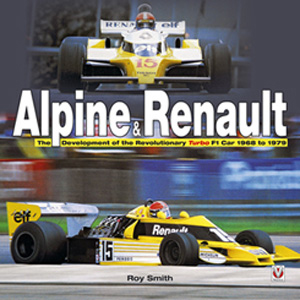 If you want to learn more about Renault and F1, start with Roy Smith’s book, “Alpine and Renault: The Development of the Revolutionary Turbo F1 Car 1968 to 1979”, now on sale at Veloce Publishing.
If you want to learn more about Renault and F1, start with Roy Smith’s book, “Alpine and Renault: The Development of the Revolutionary Turbo F1 Car 1968 to 1979”, now on sale at Veloce Publishing.
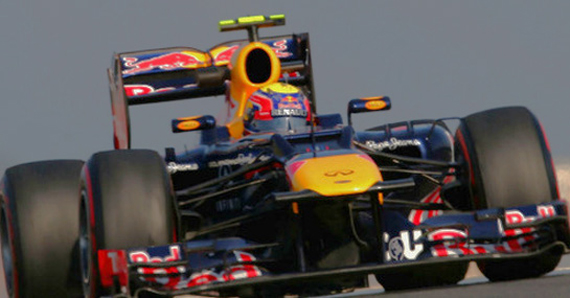
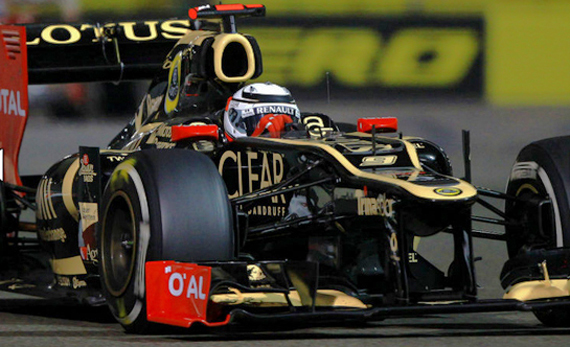
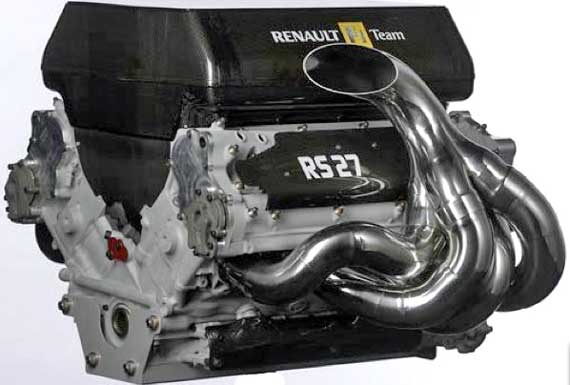
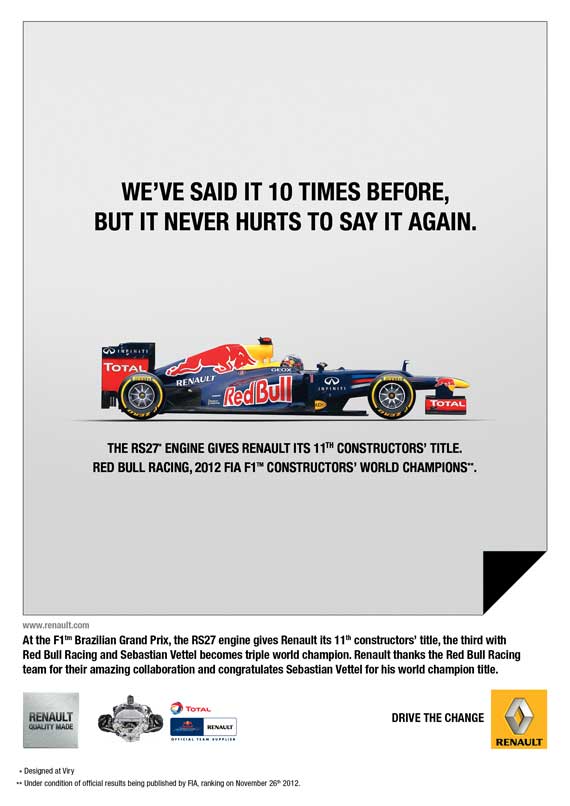
Terrific, Renault has been winning races for 50+++ years. Many class vistories @ LeMans. Last time ferrari won LeMans was 1965 , N.A.R.T. in a two two year old car. Ferrari brass made numerous snide comments to the press about Red Bull being new, flash in the pan & lucky. Last time ferrari finished in top 5 at LeMans and won class; 81 LeMans 5th. O.A. IMSA class winner. TIDE pozzi ferrari france 512BBLM, # 31589. TIDE palm beach, tom I.davis owned & raced car from sept. 1980- july 1987. Save the MIAMI Marine Stadium and old palm beach. Merry Christmas!
I really do think Renault missed an opportunity here. Think of the investment they have involved themselves in and to not capitalise on it with they success they have experienced seems incredible. Maybe their brand managers are floating a different boat but there`s a positive spin to everything and I`m sure major success like this could have been used somehow even if it were to enhance perception of being right up there in technology or reliability.
Has Renault surpassed Ford in F1 wins? If so it would be second to Ferrari in victories.
A very inciteful article. It is difficult for us Americans to comprehend that Renault is the creator of some of the world’s most advanced and technologically superior engines. The Renaults that linger in our collective memories are nasty little sedans that rusted and were ugly. While the Infiniti badge is on the Red Bulls there has been no communication to make the connection. Too bad!
The association of a brand with motorsport is very important. I have long been a keen Citroen man and avidly followed its rally exploits whilst owning and enjoying a Citroen road car. More recently I owned a Peugeot diesel and loved the fact that the oil and FAP technology were the same as in the 908 endurance racer; I went to the 6-hour ILM series race at Silverstone in 2011 to see this car perform and shake the hand of Olivier Quesnel, Sebastian Bourdais and Franck Montagny in the pits. And then Peugeot pulled out…so I began to follow F1 more closely again – and bought a Renault! I may be fickle with my allegiances, but personally I associate the commitment to motorsport of a company with its road vehicles and I agree that those who pull out (Peugeot) or who don’t advertise their success enough (Renault) are missing an opportunity to sell cars.
I’m not just into French cars, by the way – a Giulietta Spider would be just the ticket, please, Santa!
Merry Christmas to all.
There is a strong car bashing movement in France and it seems that RENAULT and PEUGEOT are ashamed of their own performance at the top level of motor racing.
It is a shame to see the gorgeous PEUGEOT Prototype condemned to a static role.
No engine is more energy efficient than a F1 engine but RENAULT promotes its ridiculous electric insect instead. Only Citroen and Sebastien Loeb are popular, but theit WRC car is a mock-up of a comparatively cheap model, thus politically correct.
Living in Germany for more than thirty years I closely followed the parallel evolution of both industries. While RENAULT slowly killed ALPINE it is VW under the visionnary Ing. Piech who brought BUGATTI back to life – and incidentally challenges GM and TOYOTA for the world pole position. Pauvre France!…